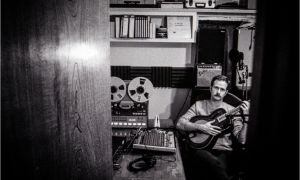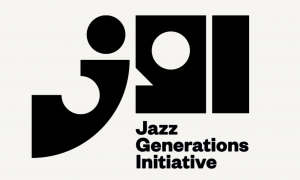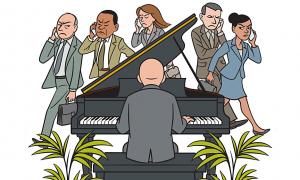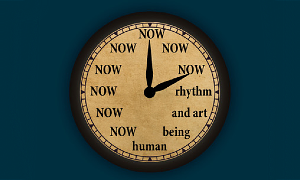Apple is already marching on, the party line is that life after Jobs will be just as innovative, just as unrelentingly competitive, just as visionary. That guys like Tim Cook will carry the mantle and further expand the company, with Jobs' vision and legacy the guiding light.
But how does that work, exactly? It seems that the loss of one of the greatest innovators in history means less brilliance andbold direction ahead, less smashingly-awesome products that everyone imitates. Sure, Apple is loaded with some of the smartest technologists and visionaries in the world. But the question is whether Apple continues to thrive and dominate without its benevolent dictator, without the guy that saved the company in the first place.
And, what this all means for the future of the music industry.
Perhaps the answer is obvious. Apple will be less competitive over the long term, it will be less powerful and dominant than it would have been with a healthy Jobs at the helm. But that may also create a more competitive landscape, one less lopsided towards Apple, with more opportunity and leverage for the future music industry and its players.
Either way, Jobs' influence will be felt for decades. Corporations aren't supposed to revolve around one brilliant persona, one amazing visionary. But I have a hard time imagining what the iPod, iPhone, or iTunes would look like without Jobs' guiding hand. Or, if we'd even be discussing these products to begin with.
Which introduces the impossibleness of this question: what killer apps, killer products, and killer innovations will go missing in the years ahead? Over the past decade or so, Steve Jobs shaped products that have dominated the music experience. And the music industry has always had a very complicated relationship with Jobs as a result: he's been hailed as both savior and villian, a brilliant visionary who cared more about iPods than selling music, and a person that dragged a reluctant and dinosauric music industry into the 2000s.
I'd say all of it is true. The iTunes Store has been the lingua franca for paid music for years, its initially-uniform 99-cent price point helped to simplify and establish a consumer concept. But the iTunes Store prays to the gods of hardware, not the artist or rights holders.
And, as powerful as the iCloud will be, it's merely super-charging largely-stolen collections. It's a solution for consumers, not the creators of content. Sure, Apple secured licenses from the labels, they extended the hand that Google and Amazon didn't. But despite that crust of bread, you'd never call Jobs a champion of musical creativity or artist compensation.
Instead, Jobs will be remembered as a chief architect of technological innovation, one with an uncanny sense for consumer preference, design, and timing. Some of that trickled down to the music industry, much of it didn't. But if the traditional music industry has been fighting innovation, Jobs has been driving it—and simplifying it. And going forward, innovation and disruption will be more chaotic without Jobs, the rules will be more confusing.
I'd say we're missing out, complicated relationship or not. The future arc just won't be the same.
But how does that work, exactly? It seems that the loss of one of the greatest innovators in history means less brilliance andbold direction ahead, less smashingly-awesome products that everyone imitates. Sure, Apple is loaded with some of the smartest technologists and visionaries in the world. But the question is whether Apple continues to thrive and dominate without its benevolent dictator, without the guy that saved the company in the first place.
And, what this all means for the future of the music industry.
Perhaps the answer is obvious. Apple will be less competitive over the long term, it will be less powerful and dominant than it would have been with a healthy Jobs at the helm. But that may also create a more competitive landscape, one less lopsided towards Apple, with more opportunity and leverage for the future music industry and its players.
Either way, Jobs' influence will be felt for decades. Corporations aren't supposed to revolve around one brilliant persona, one amazing visionary. But I have a hard time imagining what the iPod, iPhone, or iTunes would look like without Jobs' guiding hand. Or, if we'd even be discussing these products to begin with.
Which introduces the impossibleness of this question: what killer apps, killer products, and killer innovations will go missing in the years ahead? Over the past decade or so, Steve Jobs shaped products that have dominated the music experience. And the music industry has always had a very complicated relationship with Jobs as a result: he's been hailed as both savior and villian, a brilliant visionary who cared more about iPods than selling music, and a person that dragged a reluctant and dinosauric music industry into the 2000s.
I'd say all of it is true. The iTunes Store has been the lingua franca for paid music for years, its initially-uniform 99-cent price point helped to simplify and establish a consumer concept. But the iTunes Store prays to the gods of hardware, not the artist or rights holders.
And, as powerful as the iCloud will be, it's merely super-charging largely-stolen collections. It's a solution for consumers, not the creators of content. Sure, Apple secured licenses from the labels, they extended the hand that Google and Amazon didn't. But despite that crust of bread, you'd never call Jobs a champion of musical creativity or artist compensation.
Instead, Jobs will be remembered as a chief architect of technological innovation, one with an uncanny sense for consumer preference, design, and timing. Some of that trickled down to the music industry, much of it didn't. But if the traditional music industry has been fighting innovation, Jobs has been driving it—and simplifying it. And going forward, innovation and disruption will be more chaotic without Jobs, the rules will be more confusing.
I'd say we're missing out, complicated relationship or not. The future arc just won't be the same.


























